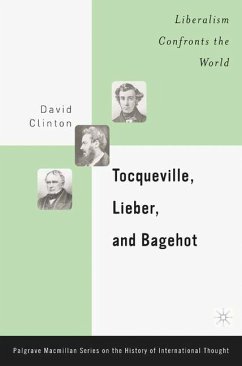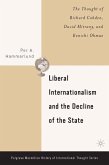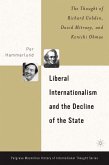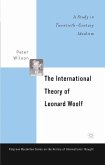Current discussions of liberalism in world affairs tend to take a shortsighted view of the historical antecedents of the school of thought. Most jump directly from Kant to Wilson with little pause in between. In this book, Clinton has selected three thinkers to exemplify developments in the liberal world, all of whom were figures of real consequence in their own time, yet altogether different in temperament and subsequent fashion. Clinton shows how their interests and concerns, both complementary and divergent, make sense of nineteenth-century liberalism without turning it into the rigid doctrine it has never been - and never can be. By using their published works, speeches, and other correspondences, Clinton explores the way they applied their general insights on politics and society to the particular conditions of the international life. In so doing he provides a comparative study of the variants on a distinctively 'liberal' approach to international relations of this period, which may hold lessons for our own time.
Highly original in conception, Tocqueville, Lieber, and Bagehot combines the sensibility of a scholar in the field of international relations with the craft of a professional historian. Clinton's goal is to breathe some vitality into current discussions of liberalism in world affairs. He has chosen three figures to exemplify developments in the liberal world - figures of real consequence in their own time, yet altogether different in temperament and subsequent fashion. Clinton shows how their interests and concerns, both complementary and divergent, make sense of 19th century liberalism without turning it into the rigid doctrine it has never been - and never can be. The book brilliantly succeeds in grounding each of its principals in the concrete political context in which he sought to have an impact." - Nicholas Onuf, International Relations, Florida International University








